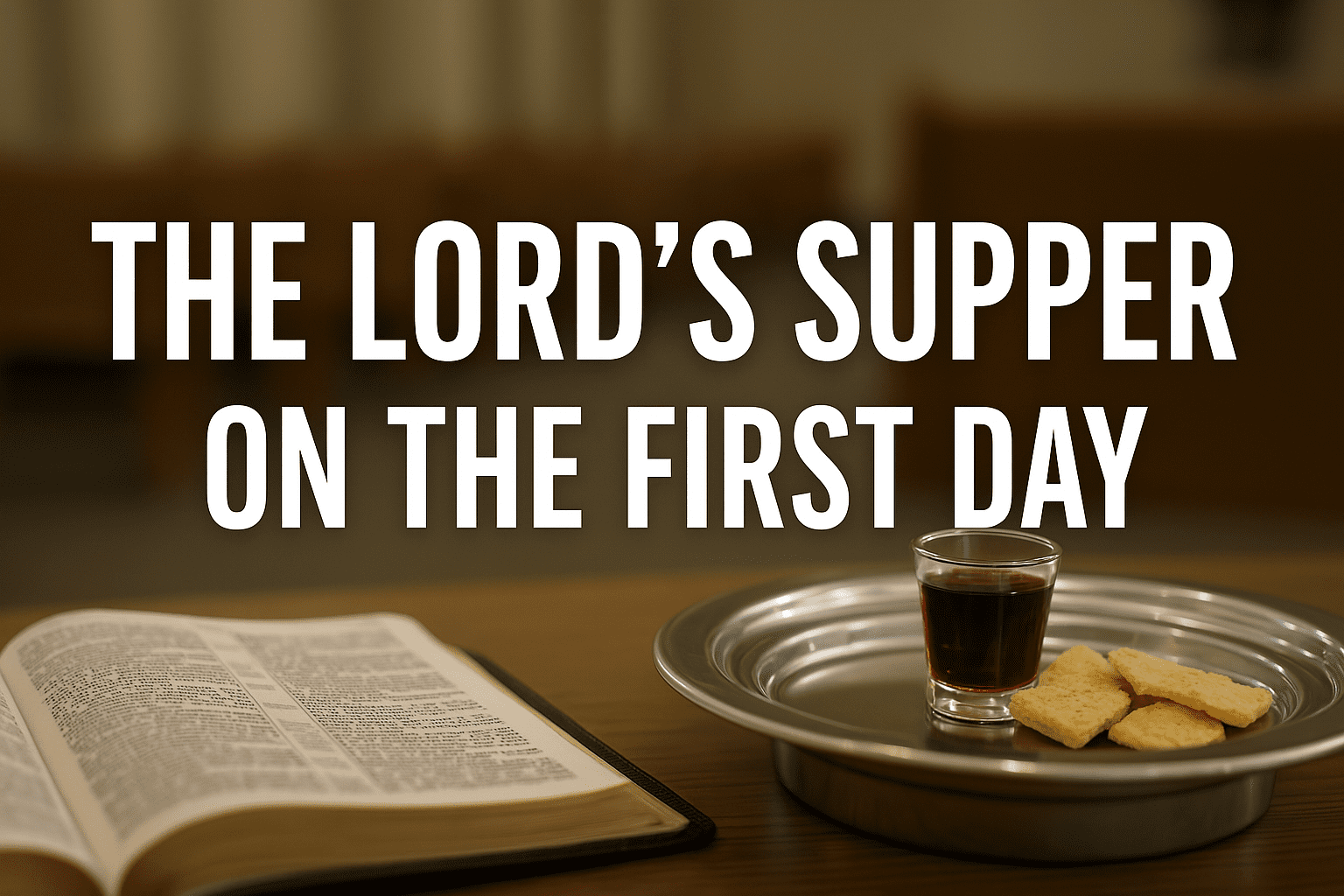A Biblical Study on the Pattern and Purpose of the Lord’s Supper
The Lord’s Supper, also known as Communion or the Breaking of Bread, is one of the most sacred and significant acts of worship revealed in the New Testament. However, its frequency, purpose, and meaning have often been misunderstood or neglected in modern religious practices. Many churches today observe the Lord’s Supper monthly, quarterly, or even just a few times a year, yet the New Testament gives us a clear pattern of weekly observance on the first day of the week.
In this post, we will take an in-depth look into what the Bible actually teaches about the Lord’s Supper, its proper day, its purpose, and how it connects to the worship and faith of the first-century church.
The Origin of the Lord’s Supper
The Lord’s Supper was instituted by Jesus Himself on the night He was betrayed:
“And He took bread, gave thanks and broke it, and gave it to them, saying, ‘This is My body which is given for you; do this in remembrance of Me.’ Likewise He also took the cup after supper, saying, ‘This cup is the new covenant in My blood, which is shed for you.'”
— Luke 22:19-20
Jesus established this memorial to remind His disciples of the sacrifice He was about to make. It was never intended to be optional or occasional but a command: “Do this in remembrance of Me.”
The Early Church’s Practice
The pattern for observing the Lord’s Supper is revealed in the New Testament:
“Now on the first day of the week, when the disciples came together to break bread, Paul, ready to depart the next day, spoke to them and continued his message until midnight.”
— Acts 20:7
Notice carefully:
- The disciples came together for a specific purpose.
- That purpose was to break bread, referring to the Lord’s Supper.
- This took place on the first day of the week, which is Sunday.
Why the First Day of the Week?
- The day of Christ’s resurrection (Mark 16:9)
- The day the church was established on Pentecost (Acts 2)
- The day Christians gathered to worship (Acts 20:7; 1 Corinthians 16:1-2)
The first day of the week carries unique significance for Christians. Nowhere in the New Testament do we find any authority or example for observing the Lord’s Supper on any other day.
The Purpose of the Lord’s Supper
“For as often as you eat this bread and drink this cup, you proclaim the Lord’s death till He comes.”
— 1 Corinthians 11:26
The Lord’s Supper is:
- A memorial of Christ’s body and blood (1 Corinthians 11:24-25)
- A proclamation of His death and sacrifice (1 Corinthians 11:26)
- A time of reflection and examination (1 Corinthians 11:28-29)
- A communion or sharing with Christ (1 Corinthians 10:16)
The focus is not on ritual but on remembrance and fellowship with Christ and one another.
How Often Should the Lord’s Supper Be Observed?
The consistent practice of the early church was weekly on the first day of the week (Acts 20:7). This was not just a tradition—it was by divine instruction.
Notice that:
- The church was commanded to assemble (Hebrews 10:25).
- When they assembled, they partook of the Lord’s Supper (Acts 20:7).
- There is one first day every week, just as there is one Sabbath every week under the Old Testament.
“Give us this day our daily bread.”
— Matthew 6:11
If daily physical nourishment is necessary, how much more is spiritual nourishment on the first day of every week?
Mistakes and Misunderstandings About the Lord’s Supper Today
1. Monthly or Quarterly Observance
Some argue that “as often” (1 Corinthians 11:26) allows for monthly or less frequent observance. However, Acts 20:7 shows that the early church practiced it every first day of the week—not monthly, quarterly, or annually.
2. Turning It Into a Ritual
Others treat the Lord’s Supper as a mere formality—rushed through without reflection. Paul warned the Corinthians against partaking “in an unworthy manner” (1 Corinthians 11:27-29). The Lord’s Supper is meant to be thoughtful and reverent.
3. Substituting Other Elements
Some modern groups substitute the unleavened bread and fruit of the vine with other elements (like leavened bread, crackers, or juice alternatives). The New Testament specifies unleavened bread and the fruit of the vine, and we must respect what is written.
The Heart of the Worshiper Matters
Not only is the when and how important, but also the attitude:
“Let a man examine himself, and so let him eat of the bread and drink of the cup.”
— 1 Corinthians 11:28
The Lord’s Supper is personal. Every Christian must:
- Reflect on the cross.
- Examine their spiritual life.
- Partake with sincerity and reverence.
Worship Must Always Be in Spirit and in Truth
“God is Spirit, and those who worship Him must worship in spirit and truth.”
— John 4:24
The Lord’s Supper is not simply about doing the right act, but doing it with the right spirit, following the truth revealed in God’s Word.
Why This Matters Today
In a religious world filled with:
- Man-made traditions,
- Innovations to draw crowds,
- And compromises to make worship more “modern,”
God still calls His people to follow His pattern. Just as Noah built the ark “according to the pattern” (Hebrews 8:5), Christians must worship according to the pattern.
The Lord’s Supper:
- Is a weekly memorial,
- Done on the first day of the week,
- With unleavened bread and fruit of the vine,
- Taken by those who are in Christ.
Anything else is an addition or subtraction from God’s instructions.
Conclusion
The early church met every first day of the week to remember the death, burial, and resurrection of Jesus through the Lord’s Supper. This sacred memorial continues today and will continue until Christ returns.
“For as often as you eat this bread and drink this cup, you proclaim the Lord’s death till He comes.”
— 1 Corinthians 11:26
May we hold fast to this simple, powerful, and authorized act of worship exactly as God has given it.


0 comments